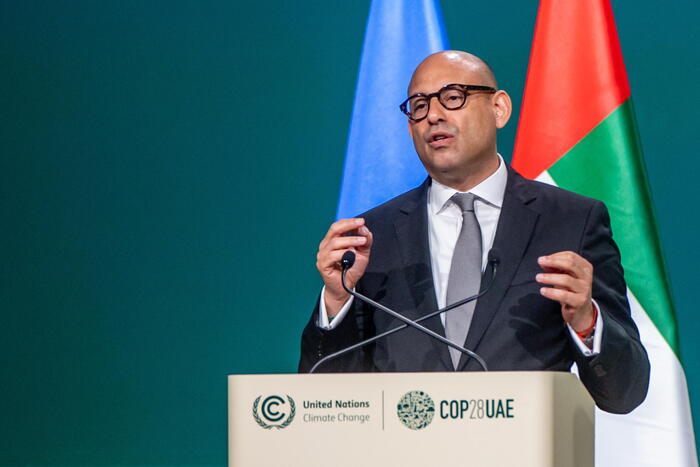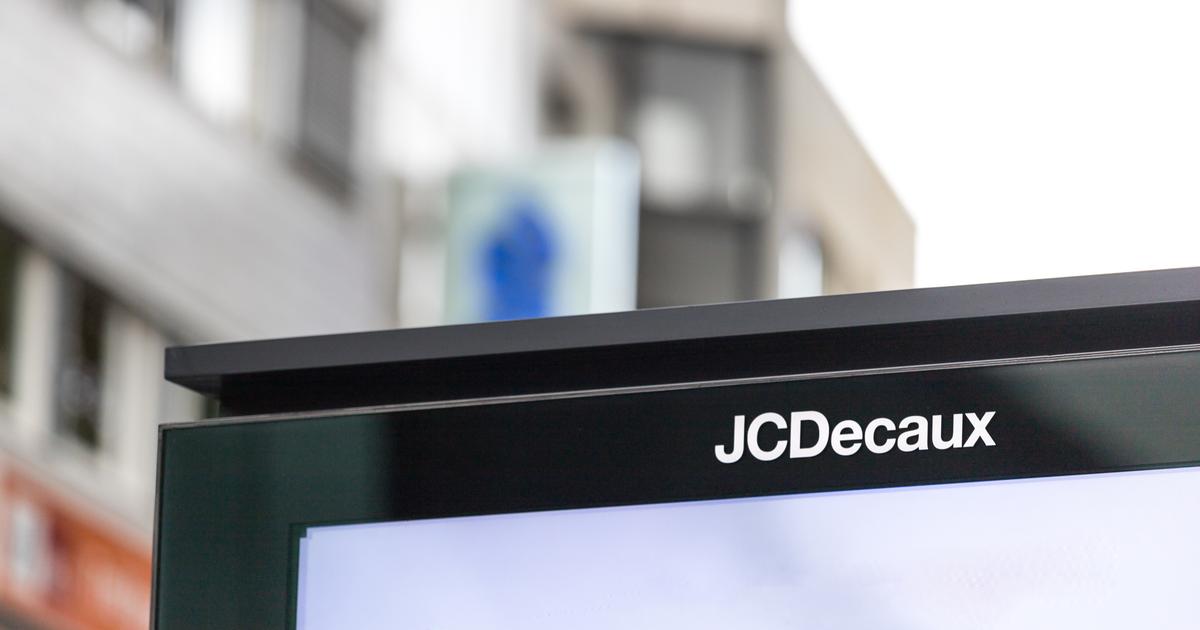Enlarge image
Shell refinery in Singapore
Photo:
Wong Maye-E / AP
There is currently a lot going on when it comes to climate: First the Federal Constitutional Court overturns the German climate protection law, then a Dutch district court orders the oil giant Royal Dutch Shell to almost halve its climate footprint and that of its suppliers by 2030.
And to present a concrete plan for this.
This is the only way to bring the group's business into line with the Paris Climate Agreement.
With 1.4 billion tons of carbon dioxide emissions per year, Shell was most recently responsible for almost twice as much CO₂ emissions as the Federal Republic of Germany.
On the same day, two climate activists joined the ExxonMobil board of directors, elected by dissatisfied, critical shareholders.
And what does that mean for you as an investor?
Well, that you can be happy if you have already invested in sustainable funds in recent years. You are practically ahead. In any case, an oil company like Shell was not represented in strictly managed funds. How much confidence in the oil company has been used up was shown in a judgment in January that also held the company responsible for the oil contamination in Nigeria's Niger Delta. Shell had announced that it wanted to be climate neutral by 2050 and reduce emissions per euro of sales by 45 percent by 2035, compared to 2016. Climate protection is one of the central benchmarks for such sustainable funds, and oil companies are simply being phased out.
Even with the tamer and more convenient variant of sustainable funds, light green index funds, oil companies have not played a role for some years from a well-considered investor's point of view.
In the MSCI SRI index, for example, oil companies such as Shell are completely absent.
Correspondingly, funds that replicate the index do not hold any Shell shares.
Shell is still represented in the Dow Jones Sustainability Index, but only has a very small share of 0.4 percent.
Even if you invested in the classic way without the climate in mind, for example in a traditional global index fund, oil companies now only play a very subordinate role.
In 2009, at the height of the financial crisis, four of the ten most valuable companies in the world were oil companies.
Already in 2019 there was hardly an oil company in the top ten.
Shell was at least ranked 9th of the 25 largest companies in the world by “Forbes”.
In 2020, however, the oil giants said goodbye to the “Forbes” list completely.
And that's a good thing for you as a fund investor: While the value of your shares in a traditional global index fund would have quadrupled since 2009, you would have done far worse with Shell shares.
The 20 euros that were put into one share at the end of 2009 would have turned into around 16 euros today, a loss of 20 percent.
And you'd have been lucky with Shell.
BP would be a lot worse.
Not to mention coal companies like RWE - from 70 euros to 30 euros in the period - or the world's largest coal company Peabody, which went bankrupt.
At this point, by the way, my credo fits again very nicely: Individual shares are always riskier than a broad-based equity fund.
And what should you do now?
Two things: On the one
hand, check your investment for climate suitability.
If you've already
invested
in
sustainable funds
, that's basically great. However, if the funds are actively managed, you must continue to observe that the funds invest in as many companies as possible worldwide in order to keep the risk of loss from individual companies low. Far more different companies are represented in global index funds than in the managed variants. You also need to check that your management is doing a good job, helping the climate and your wallet at the same time. Year after year you spend 1.5 percent of the investment amount on management, eight times as much as with a light green index fund.
If you
have invested
in market-wide
sustainable index funds
, you have less work. Then the market will probably fix it for you. Not quite as green, but definitely with a significantly lower CO₂ footprint - and significantly cheaper. Possibly even with better returns than with traditional market-wide equity funds in the coming years. From an investor's point of view, both concepts have developed similarly since the financial crisis, we have determined at Finanztip. In 2020, however, the sustainable funds even performed significantly better than their unsustainable counterparts in many areas. The head of the world's largest fund company Blackrock, Larry Fink, says that this is the case in more than 80 percent of all cases.
However, if you still have a lot of money in
individual companies
that are dependent on oil, coal and natural gas, you should deal with it. In investor German, experts speak of the risk of "stranded assets", that is, of the alluvial planks of sunken ships. Greenpeace legend Jeremy Legget had warned of this 25 years ago in connection with coal and oil companies.
Speaking of Blackrock and Co. - the big
fund companies
are certainly not as radical as an environmental protection organization. But many of these financial giants have seen the signs of the times and are increasingly using their influence at shareholder meetings for the benefit of the planet. Above, I mentioned the surprising appointment of two more progressive directors to Exxon's board of directors. A tiny hedge fund provided the impetus, but Blackrock also provided backing and voting weight. This shows that even an investment that is not expressly sustainable can make a difference.
Second, you should check your everyday investments for climate suitability.
Money in projects that fail for climate reasons is also available here: Your car that blows more dirt out of the exhaust than the manufacturer once promised.
Or a house with heating that you already know will not survive 2030.
Heating theme
: You probably have to do something here. Not because the mechanics of the heating are in the bucket, but because the fuel is becoming more and more expensive either because of the CO₂ emission. Or because the current heating will actually be banned soon. Here, too, the signs on the horizon are actually clear. The current government draft for the Climate Protection Act envisages a 43 percent reduction in emissions from the building sector by 2030. But at least conventional help is approaching. If you throw out your oil heater and install a new, more environmentally friendly heater, the state will help with up to 45 percent of the costs for removal and installation. You can find out how to do this here. The currently frequently used combination of natural gas heating and solar thermal energy on the roof may not bring you into the climate year 2040 yet.But a heat pump in the garden coupled with photovoltaics on the roof emits no more CO₂ at all and could become a hit in the future.
Mobility topic:
You live in the country and you will definitely not be able to do without a car in the future? There is still a grant of 9,000 euros for the e-car. This is about the money. Some can safely charge the car with their own solar roof. The real challenge, however, is to find the car now or in the near future that you will actually be able to drive in the coming years and that will not become slow-moving and unsaleable in two years because the loading time is too long or the box is too heavy. In the current version of the Climate Protection Act, the federal government wants to reduce CO₂ emissions in traffic by 43 percent by 2030 - at least from the low level of the Corona year 2020.
Conclusion:
The Shell judgment can please you as an investor, it need not frighten you.
More climate protection and a better investment, you can do that well.
The instruments are already there.
And both are now just as easy as investing without any climate protection, historically without any loss of returns, and maybe even more lucrative in the future.
Climate protection in our everyday investments, that will be the real challenge.
Not because of a lack of money.
Here you could invest part of the money for which the banks no longer want to pay us interest on a day-to-day basis.
But because it's not that easy yet.
But in the end everyone can benefit.
You, the climate - not just for our children - and also the companies that help us to overcome the crisis.















